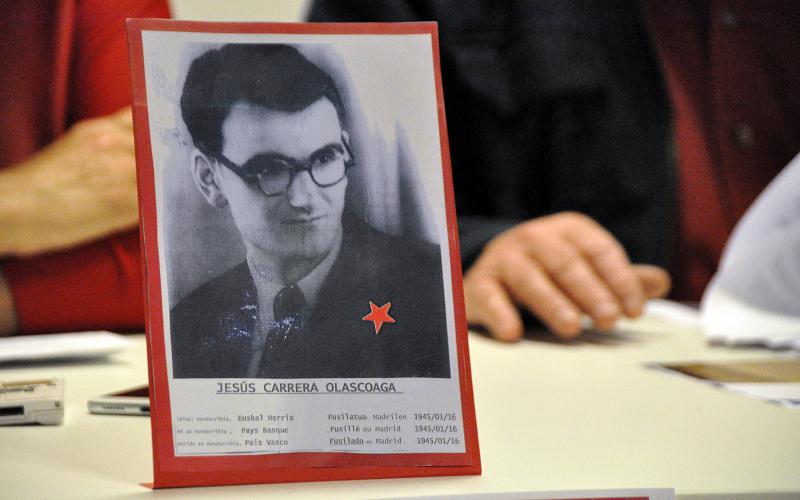
- On the 80th anniversary of the assassination of Jesús Carrera, all the political parties that make up the Hondarribia corporation have issued a municipal declaration.

In an institutional declaration signed by all the political parties that make up the City of Hondarribia, they recalled that on 16 January 1945 at 10:00 hours he was taken from Alcalá de Henares prison and killed outside his cemetery.
They then wished to comment on the life of Carrera and, finally, they recognized Carrera Olaskoaga as “a victim of the unjust situations generated by the dictatorship”, in solidarity with their families.
“He was born on August 17, 1911, on North Street. From a very young age, it combines culture with politics. Member of the Kerizpe Association and the Communist Youth of UGT and Irun.
After the outbreak of the second republic, his political career was fruitful, from the UGT Trade Union Secretary to the appointment of Commander of the Communist Battalion of the Gernikako Arbola Reserve of Euzko Gudarostea. In 1939 and 1940 he was in the concentration camps of Argeles, Saint Cyprien, Gurs and Rivesaltes. The Communist Party rescued him from that last concentration camp, leaving the reorganisation of the Communist Party in charge. In 1942 he was appointed Secretary General of the Communist Party of Spain.
He was arrested in March 1943 in Madrid and sentenced to death for espionage and communism in summary proceedings number 121,548 held in 1944. They complied with the decision on January 16, 1945 and smoked Jesús Carrera Alcalá de Henares, leaving his body forgotten in a mass grave for 78 years.”
The members of the corporation have highlighted that, thanks to the work done by several historians of the town, the remains of Kandido Sasrta, first in 2008, and of Jesús Carrera, later in 2018, managed to return to Hondarribia. But in addition to these neighbors, they have recalled that between 1936 and 1975 there were many Hondarribitarras who suffered bombing, firing, incarceration, deportations, exile, work cleanings, economic sanctions, trials and convictions by emergency courts, as well as other forms of human rights violation.